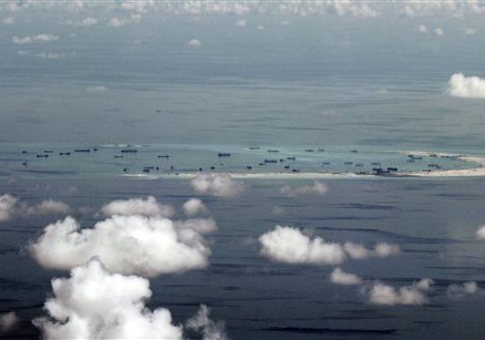Experts met at the Center for Strategic and International Studies on Tuesday to discuss rising tension in the South China Sea.
China seeks to achieve regional hegemony in Asia, and its behavior now serves to fulfill this long-term goal, said Patrick Cronin, an official at the Center for New American Security.
"China’s long-term strategy is to strengthen its position," Cronin said.
As China has propped itself up as a world power, it has expanded its military arsenal into the South China Sea in an attempt to intimidate the surrounding countries, Ian Storey, senior fellow at the Institute for Southeast Asia Studies, said.
He said the smaller nations surrounding China have felt the increased tension, and have increased their military spending, accordingly. The countries cannot feasibly keep up with Chinese development, however.
"Simply put, the gap between the military power of China and Southeast Asia has widened into a chasm," Storey said. "Southeast Asian countries have also been raising their defense spending. They’ve equipped themselves with larger, longer-range surface and subsurface vessels that have improved their power projection capabilities."
Peter Jennings of the Australian Strategic Policy Institute said there is no balance of power, which is how China assumed a leading role in the region.
"Really, the problem that we’re dealing with here is not so much a problem of international balance, but an absence of balance," Jennings said.
Cronin said the U.S. could help in balancing power in the area, securing America’s interest while easing tensions between the Chinese and surrounding countries.
He said that the United States should take a multi-faceted approach in dealing with China, while aligning itself with allies in the region to resolve the conflict diplomatically.
"The United States must take a balanced approach," Cronin said. "This approach must be comprehensive, beginning with a strong economic foundation, national diplomatic and political engagement, and a strong national military capability.
"Stronger security cooperation with allies and partners, however, will remain necessary to harness the larger strategic and political vision. We must keep our eye on this larger balance of power."
Ultimately, China is exerting power because there is no nation that it sees as able to rein it in. China wishes to be the regional hegemonic power, and it is testing neighboring states, including Australia and the United States, to see whether they will stop them from assuming the role, Jennings said.
"China is in a pragmatic position to strengthen its position by continuing to test the limits of the international poles for its own restructuring activities."
